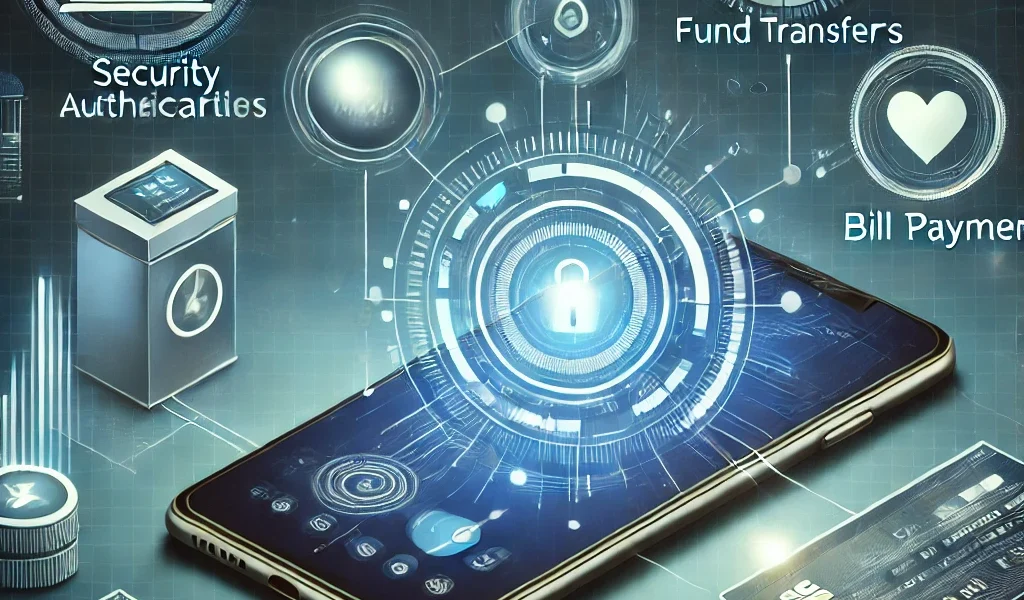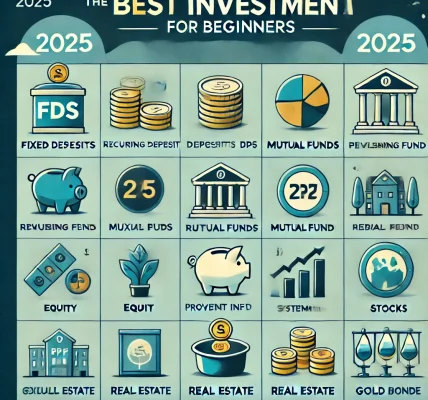Introduction
With the increasing adoption of digital banking, mobile banking apps have become essential for managing finances conveniently. Whether you need to check your balance, transfer funds, or pay bills, mobile banking apps offer a seamless and secure way to handle transactions. However, with so many options available, choosing the best one can be overwhelming.
This blog explores the top mobile banking apps, analyzing their features, security measures, and ease of use, helping you make an informed decision about which one suits your financial needs best.
1. Key Features to Look for in a Mobile Banking App
When selecting a mobile banking app, it’s essential to consider the following features:
1.1 User-Friendly Interface
- A simple and intuitive layout ensures easy navigation.
- Quick access to essential banking features like account balance, transactions, and transfers.
1.2 Security and Fraud Protection
- End-to-end encryption for securing financial data.
- Two-factor authentication (2FA) for added protection.
- Biometric login (Face ID, fingerprint scan) to prevent unauthorized access.
1.3 Fund Transfers and Bill Payments
- Instant money transfers between accounts.
- Bill payment options for utilities, credit cards, and loans.
- Peer-to-peer (P2P) payments for seamless transactions between individuals.
1.4 Mobile Check Deposits
- Ability to deposit checks by taking a picture through the app.
1.5 Budgeting and Expense Tracking
- Spending insights and expense categorization.
- Notifications and alerts for unusual transactions or low balances.
1.6 Investment and Savings Options
- Integration with investment accounts.
- Automatic savings features like round-ups on transactions.
2. Top Mobile Banking Apps in 2025
1. Chase Mobile (Best for Comprehensive Banking)
✅ Highly secure with biometric authentication and encryption. ✅ Offers investment and credit card management. ✅ ATM locator and mobile check deposit available. ✅ Seamless integration with Zelle for quick transfers.
⚠️ Limited fee-free ATMs outside the Chase network.
2. Bank of America Mobile Banking (Best for Security and Fraud Protection)
✅ AI-powered virtual assistant (Erica) for banking assistance. ✅ Robust security features, including 2FA and real-time alerts. ✅ Personalized financial insights.
⚠️ Some features may require additional fees.
3. Capital One Mobile (Best for Simplicity and Ease of Use)
✅ No monthly maintenance fees. ✅ Free credit score monitoring with CreditWise. ✅ 24/7 fraud monitoring and alerts.
⚠️ Limited physical branch access.
4. Wells Fargo Mobile (Best for Bill Payments and Transfers)
✅ Easy bill pay and recurring payments setup. ✅ Wide ATM network and cash deposit options. ✅ Customizable account alerts.
⚠️ Past security breaches have raised concerns.
5. Chime (Best for No-Fee Banking)
✅ No overdraft fees or minimum balance requirements. ✅ Early direct deposit feature. ✅ Automatic savings feature.
⚠️ No physical branches.
6. Revolut (Best for International Banking)
✅ No foreign transaction fees. ✅ Multi-currency support with competitive exchange rates. ✅ Cryptocurrency and stock trading options.
⚠️ Some premium features require a paid subscription.
3. How to Choose the Best Mobile Banking App for You
| Banking Needs | Recommended Apps |
|---|---|
| Overall Best Features | Chase, Bank of America |
| Best for Security | Bank of America, Capital One |
| Best for No Fees | Chime, Capital One |
| Best for International | Revolut |
| Best for Investments | Chase, Revolut |
4. Final Thoughts
Choosing the best mobile banking app depends on your specific financial needs. Whether you prioritize security, no-fee banking, ease of use, or investment features, the apps mentioned above provide a solid foundation for digital banking in 2025.
Before committing, always check for updates, read user reviews, and ensure the app aligns with your banking habits.
Disclaimer:
This article is for informational purposes only and does not constitute financial advice. Always conduct your own research and consult a professional before making banking decisions.




